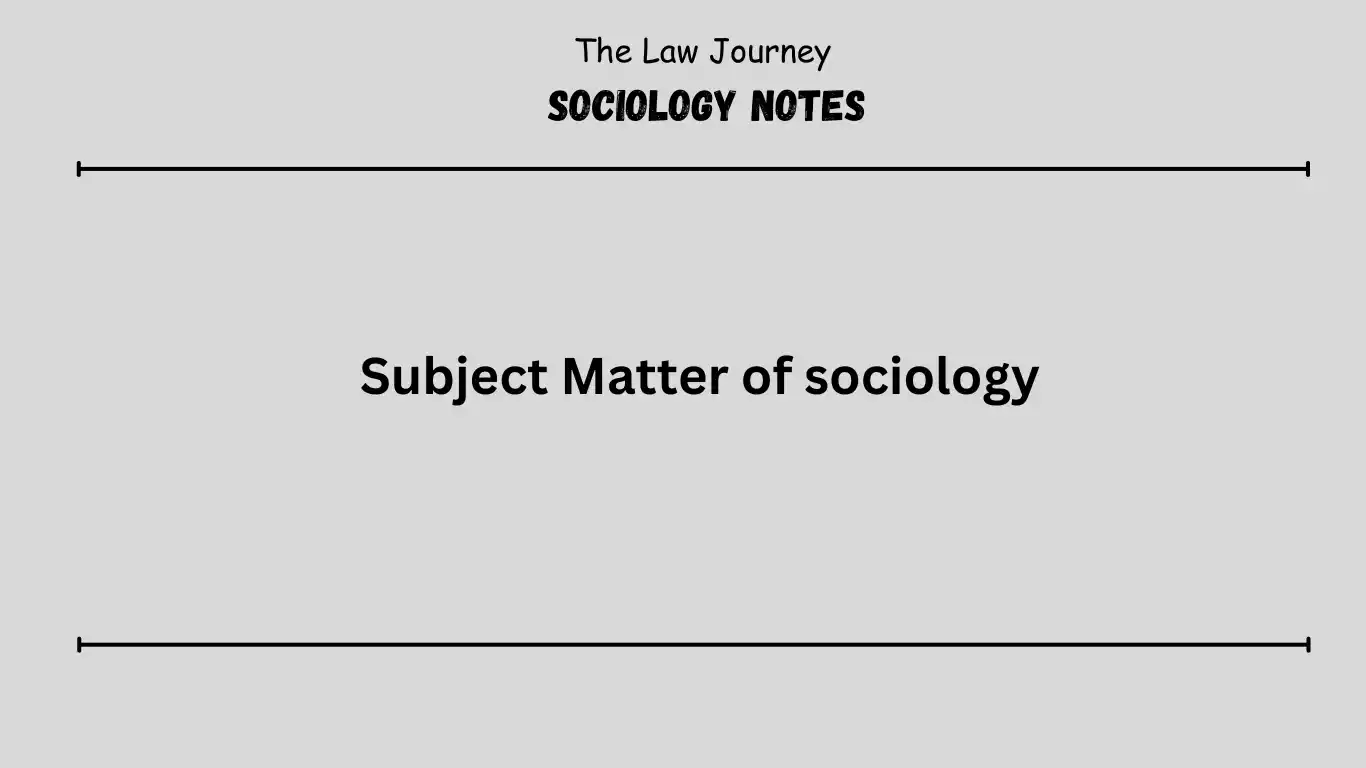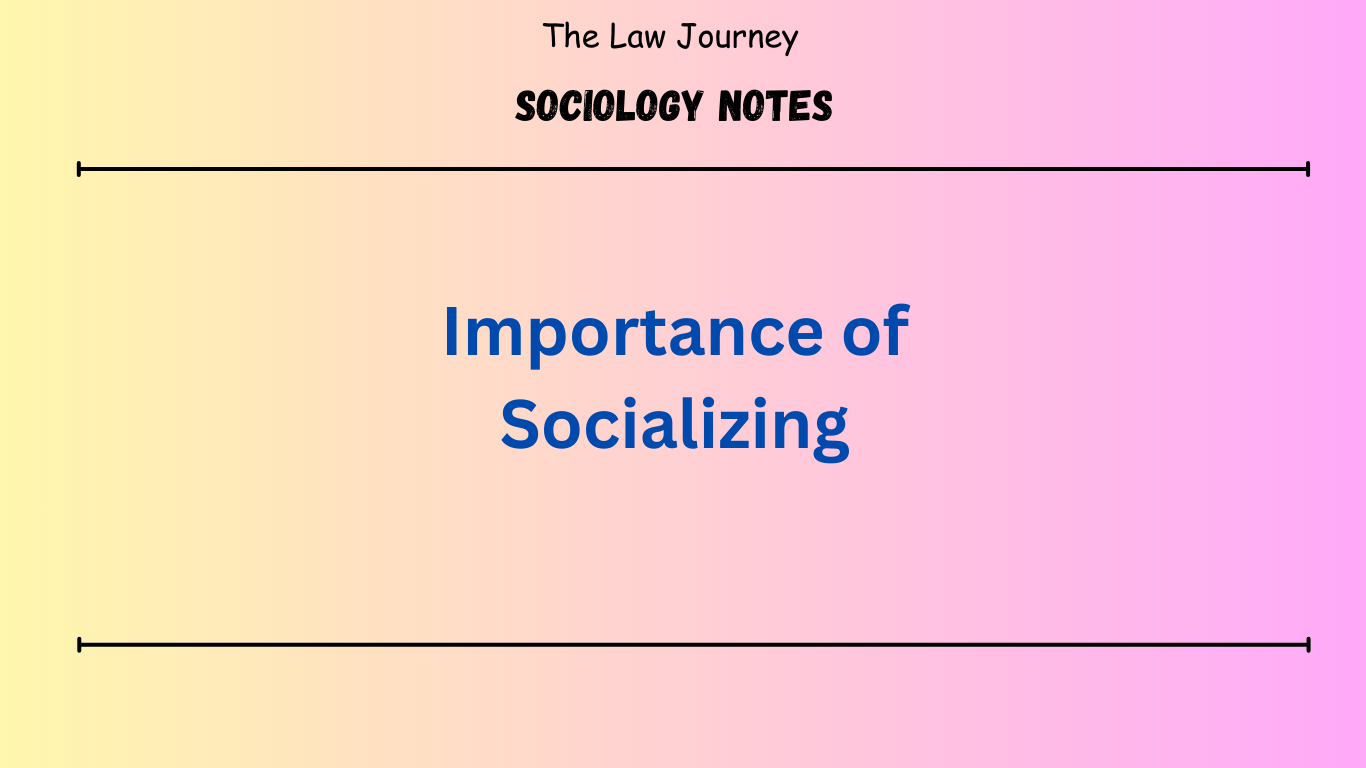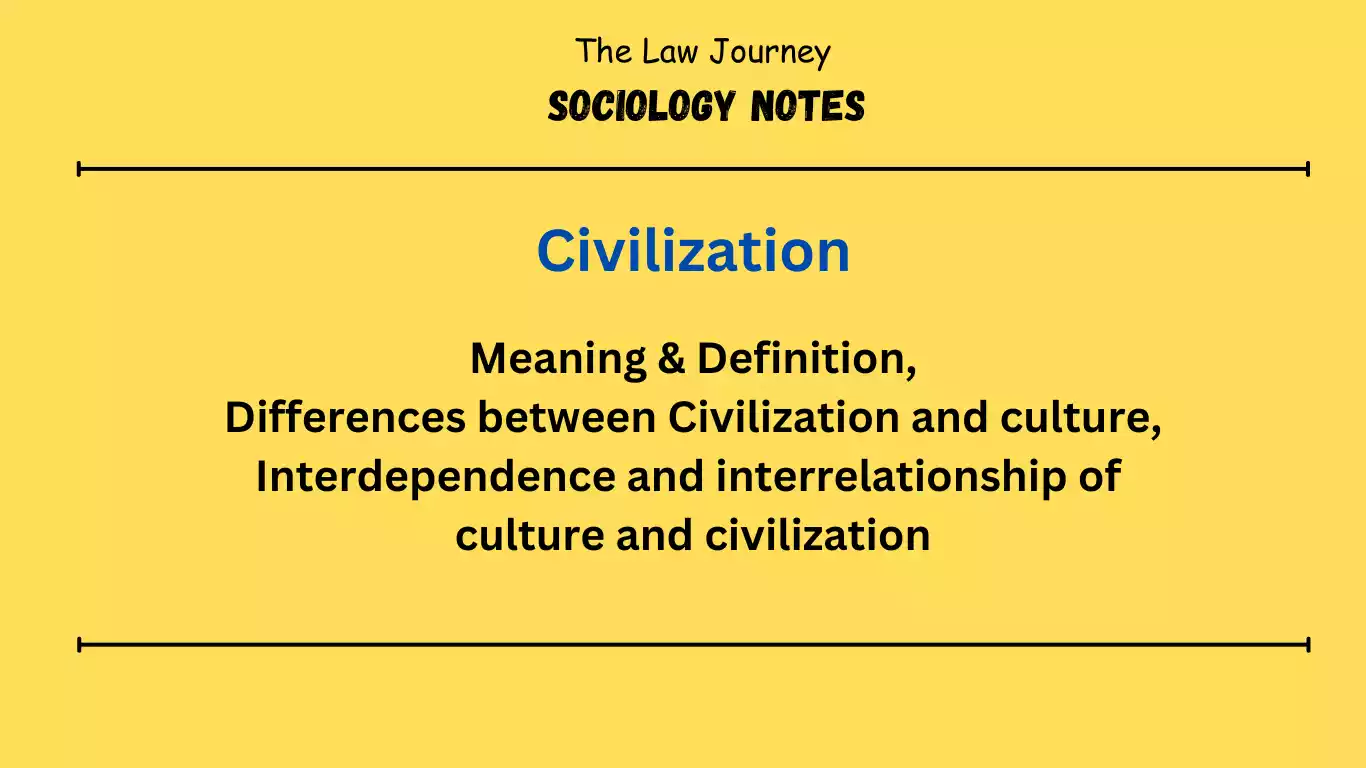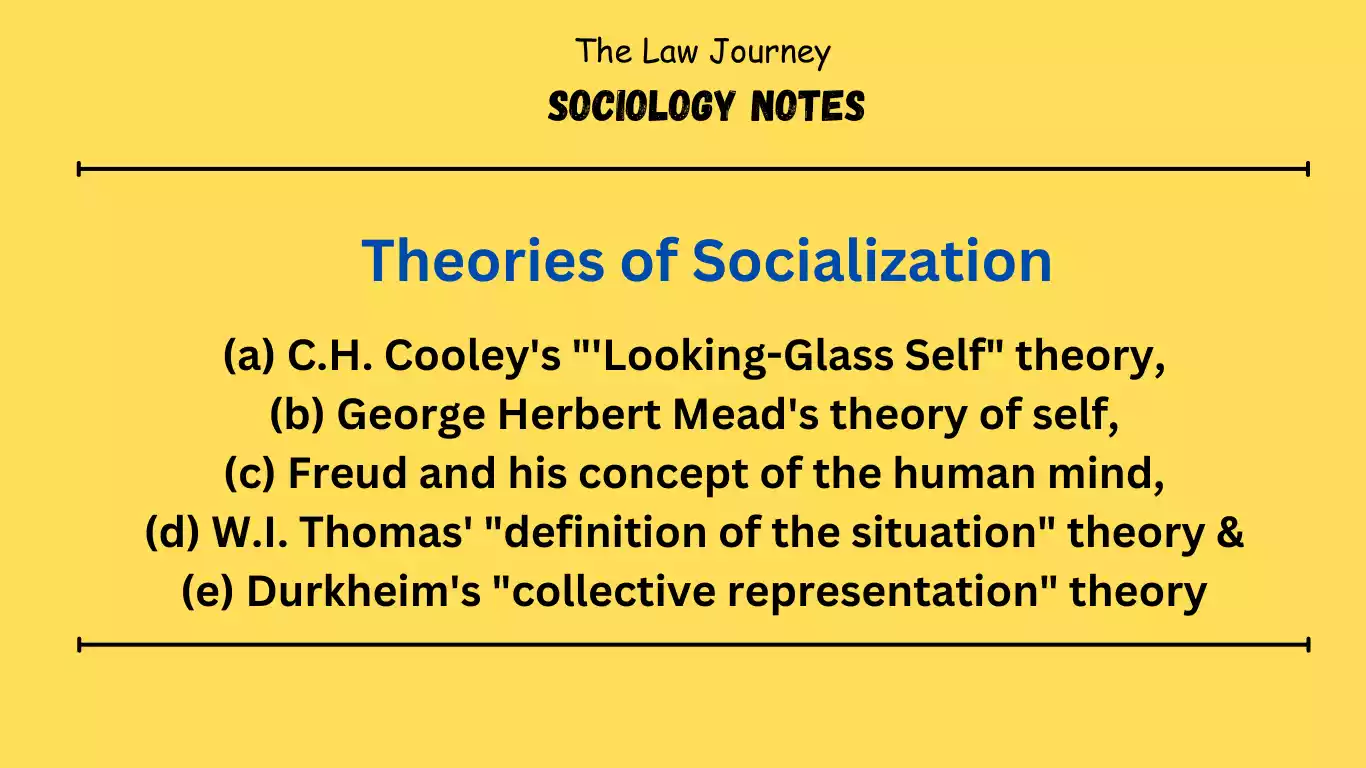Subject Matter of sociology – Main Concerns of Sociology (Subjects of Sociology) Since the dawn of sociology, sociologists have placed great emphasis on human-society dynamics. The focus wavered between man and society. “sometimes Sometimes the emphasis was on people in society, other times it was on people in society. But at no point in its development has man as an individual been the center of attention.
On the contrary, sociology focused on society and its major units and dynamics. We aim to analyze social dynamics in terms of organized patterns of social relations. Sociology next says that he seeks clarification of three basic questions. How and why do societies arise? How and why do societies endure? Why and how do societies change?
A comprehensive and expanding science like sociology is undoubtedly growing rapidly. It is not surprising that sociologists have developed different approaches from time to time to enrich their research. Nevertheless, it is possible to identify some issues that are the subject of sociology and on which there is little disagreement among sociologists. Such issues and areas broadly constitute the field of sociology.
A general overview of the areas of sociology for which there is widespread agreement among sociologists can be given here.
First, the main concern of sociology is sociological analysis. This means that sociologists try to analyze human society and culture from a sociological perspective. He is concerned with the development of society and seeks to reconstruct the major stages of the evolutionary process. He also attempts to “analyze the factors and forces underlying the historical transformation of society.” Sociological analysis emphasizes the scientific method.
Second, sociology has paid due attention to the study of the major units of social life. This field concerns social behavior and relationships, individual identities, groups of all kinds, communities (urban, rural, tribal), associations, organizations and populations.
Third, sociology studies the development of various basic social institutions, such as family and kinship, religion and property, economics, politics, law, education and science, leisure and welfare institutions, aesthetic and expressive institutions, dealt with structure and function.
Fourth, sociologists cannot afford to ignore fundamental social processes that play an important role. Social processes such as cooperation and competition, adaptation and assimilation, social conflict including war and revolution. Communication, including the formation, expression and modification of opinions. Social differentiation and stratification, socialization and indoctrination, social control and deviance, including crime, suicide, social integration and social change occupy an important position in sociological research.
Fifth, sociology has also placed great emphasis on research methods. contemporary sociology tends to be rational and empirical rather than philosophical idealistic. Sociologists have attempted to apply the scientific method to social research. As Natural scientists, sociologists, feel the problems that need to be investigated. Then he tries to formulate it into one Proposals that can be researched. After collecting data, he attempts a connection between them. He eventually arrives at meaningful concepts, statements and generalizations.
Sixth, sociologists are interested in the task of “formulating concepts, propositions, and theories.” “Concepts are abstracted from concrete experience to represent classes of phenomena” concept. The proposals “seek to reflect the relationships between different categories of data or concepts.” For example, “lower-class youth are more likely to commit crimes than middle-class youth.” This proposal is controversial. It may turn out to be wrong.
To give another example, “Taking advantage of opportunities for higher education and professional mobility leads to the weakening of kinship ties and territorial loyalties.” Sounds good, but a closer look confirms it. Query and collect relevant data. Theory goes beyond concepts and statements. “A theory is a systematically coherent description that explains social phenomena.” Sociological theory is primarily factual, not philosophical. A sociological perspective becomes more meaningful and fruitful when you try it.
Acquire knowledge from concepts, descriptions, and theories. Finally, in this age of knowledge explosion, sociologists have also tried to specialize. Thus, many specialized research areas have emerged today. The sociology of knowledge, the sociology of history, the sociology of literature, the sociology of culture, the sociology of religion, the sociology of the family, etc. constitute such specialties, and because the field of study of sociology is so vast, Every student who studies is endowed with talent and a wealth of knowledge. The sociological imagination can bring a new dimension to sociology as a whole.
Related Post | Subject Matter of sociology
- Legal History Notes
- Concept of Social Groups in Sociology
- RTI notes
- law project maker
- moot court memorial maker
- Political Notes
- Law of Torts notes
Reference Books | Subject Matter of sociology
- Handbook of Indian Sociology by Veena Das
- C.N. Shankar Rao – Principle of sociology with an introduction to social thoughts
- Introduction to Sociology by Anthony Giddens
- A Dictionary of Sociology by John Scott
- Sociological Theory by George Ritzer
- Social Change in Modern India by M N Srinivas

















